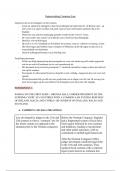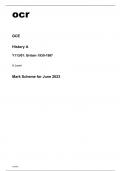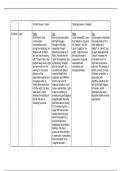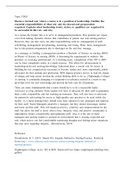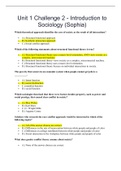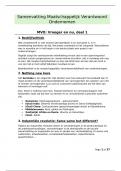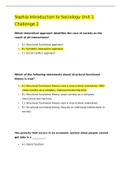Samenvatting
Samenvatting Common Law and Legal English AJ 24-25
Toelichting document: - Ik heb me altijd gebaseerd op de powerpoints en voor veel zaken nog zelf verder opgezocht wat het nu echt wil betekenen (er zit veel opzoekwerk in). - Dit document bevat zeer kort powerpoint 3 - historiek (normaliter vraagt ze daar niet echt iets van op het examen. - Po...
[Meer zien]
